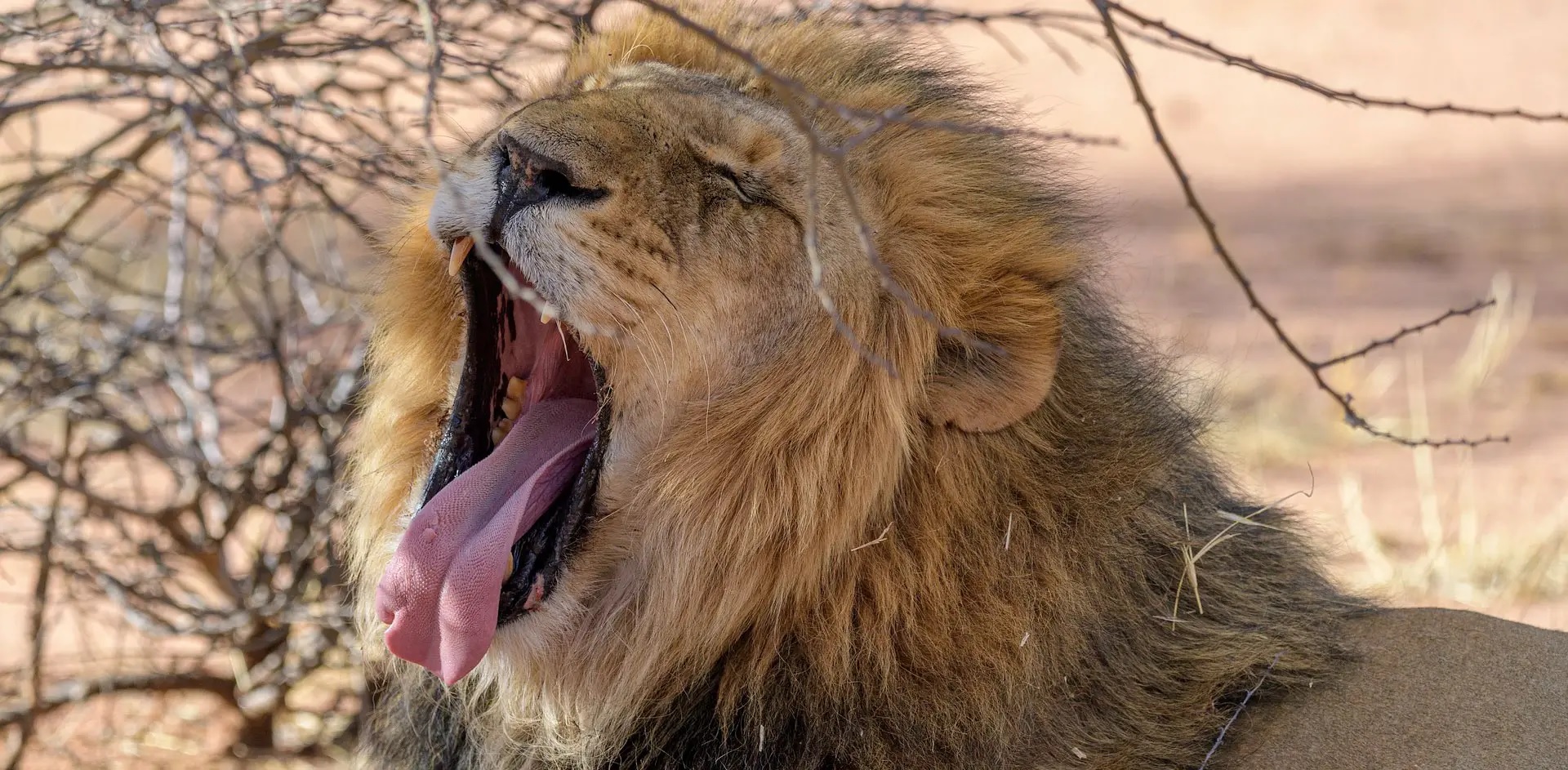
Ever wondered what makes a lion's tongue so special? Lions, often called the kings of the jungle, have tongues that are just as fascinating as their majestic manes. These big cats use their tongues for more than just tasting their prey. A lion's tongue is covered in tiny, backward-facing spines called papillae. These spines help lions scrape meat off bones and groom their fur. Imagine a built-in comb and knife all in one! Did you know a lion's tongue can even help it drink water efficiently? By curling the tongue backward, lions create a scoop to lap up water quickly. Join us as we explore 18 amazing facts about these incredible tongues!
Lion Tongue Facts You Didn't Know
Lions are fascinating creatures, and their tongues are no exception. Let's dive into some incredible facts about lion tongues that will leave you amazed.
The Structure of a Lion's Tongue
A lion's tongue isn't just for tasting. Its unique structure serves multiple purposes.
-
Papillae: Lion tongues are covered with tiny, backward-facing spines called papillae. These spines are made of keratin, the same protein that makes up human hair and nails.
-
Rough Texture: The papillae give the tongue a sandpaper-like texture. This roughness helps lions scrape meat off bones and groom themselves effectively.
-
Length: A lion's tongue can be up to 12 inches long. This length helps them reach and clean hard-to-reach areas on their bodies.
The Role of the Tongue in Feeding
Lions rely heavily on their tongues during feeding. Here's how.
-
Meat Scraping: The rough texture of the tongue allows lions to scrape every bit of meat off bones, ensuring they get the most out of their prey.
-
Water Lapping: Lions use their tongues to lap up water. The backward-facing papillae help them scoop water into their mouths efficiently.
-
Taste: Lions have taste buds on their tongues, just like humans. However, they have fewer taste buds, which means they don't taste food as intensely as humans do.
Grooming and Social Interaction
A lion's tongue plays a crucial role in grooming and social bonding.
-
Self-Grooming: Lions use their tongues to clean themselves. The rough texture helps remove dirt and parasites from their fur.
-
Social Grooming: Lions often groom each other as a way to strengthen social bonds within the pride. This behavior is known as allogrooming.
-
Cub Care: Lionesses use their tongues to clean their cubs. This not only keeps the cubs clean but also stimulates their bodily functions.
Health and Survival
The tongue is vital for a lion's health and survival in the wild.
-
Wound Cleaning: Lions use their tongues to clean wounds. The rough texture helps remove debris and promotes healing.
-
Temperature Regulation: Panting with their tongues out helps lions regulate their body temperature, especially in the hot savannah.
-
Scent Marking: Lions use their tongues to spread their scent on objects, marking their territory and communicating with other lions.
Unique Adaptations
Lions have evolved unique adaptations that make their tongues incredibly effective tools.
-
Keratin Spines: The keratin spines on a lion's tongue are incredibly tough, allowing them to endure the wear and tear of scraping meat off bones.
-
Flexible Tongue: Despite its rough texture, a lion's tongue is quite flexible. This flexibility helps them manipulate food and groom themselves with precision.
-
Strong Muscles: The muscles in a lion's tongue are incredibly strong, enabling them to exert significant force when feeding or grooming.
Fun Facts
Here are some fun and lesser-known facts about lion tongues.
-
Color: A lion's tongue is typically pink, but it can appear darker due to the presence of blood vessels and the rough texture.
-
Sensitivity: Despite their rough texture, lion tongues are quite sensitive. This sensitivity helps them detect the texture and temperature of their food.
-
Lifespan: The condition of a lion's tongue can indicate its age and health. Older lions may have more worn-down papillae due to years of use.
Fascinating World of Lion Tongues
Lion tongues are more than just tools for eating. Their rough texture, covered in tiny, backward-facing spines called papillae, helps lions groom themselves and their pride members. These papillae also assist in stripping meat from bones, making every meal efficient. Lions use their tongues to communicate, showing affection and social bonds through grooming.
Their tongues play a crucial role in hydration. Lions lap up water with impressive speed, ensuring they stay hydrated in their often arid habitats. The unique structure of their tongues even helps them cool down by spreading saliva over their fur.
Understanding these facts about lion tongues gives us a deeper appreciation for these majestic creatures. Their tongues are vital for survival, social interaction, and maintaining their regal appearance. Next time you think of lions, remember their incredible tongues and the many roles they play in their daily lives.
Was this page helpful?
Our commitment to delivering trustworthy and engaging content is at the heart of what we do. Each fact on our site is contributed by real users like you, bringing a wealth of diverse insights and information. To ensure the highest standards of accuracy and reliability, our dedicated editors meticulously review each submission. This process guarantees that the facts we share are not only fascinating but also credible. Trust in our commitment to quality and authenticity as you explore and learn with us.


